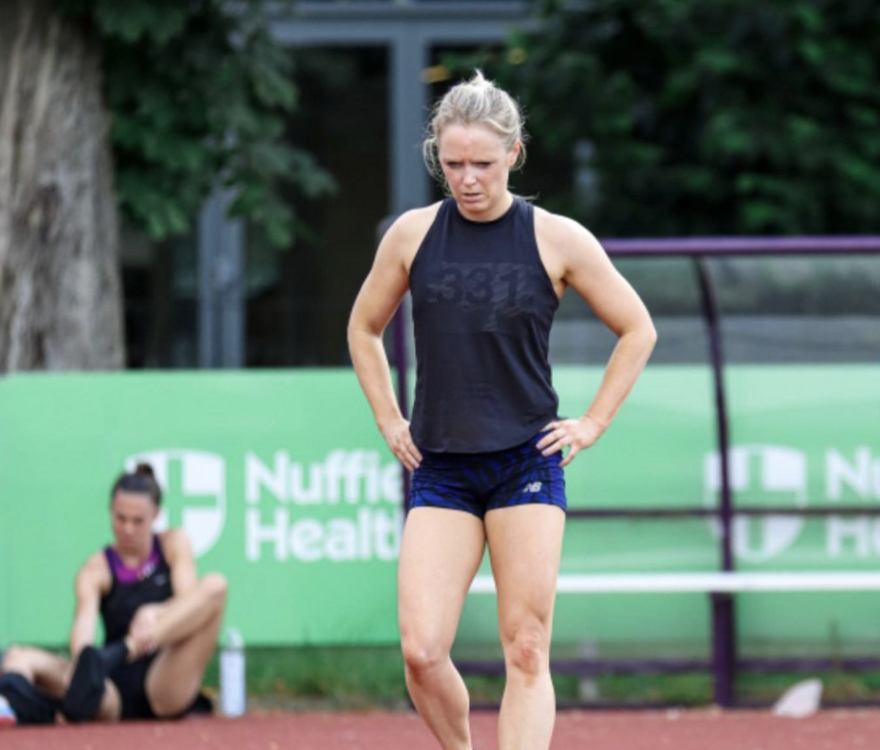
“Will I ever run again?”
It was the first question I remember asking when I woke up from a week long coma.
My name is Emma. I’m the athletics programme manager at Loughborough University and used to be a half decent sprinter. I made it to a few British Championships finals, picked up some medals along the way, and competed for England and GB U23s back in the day.
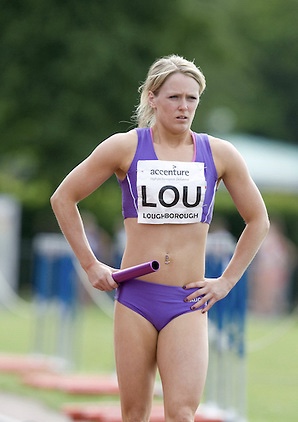
Photo by Nigel Farrow
In July 2014 I was 29 and winding down from high level competition. I’d moved from Loughborough to Cardiff at the end of 2013, and was asked to travel to Portugal with the Welsh Commonwealth Games team, where I would act as their Commonwealth holding camp massage therapist. I hadn’t felt 100% for a few days just before travelling, and woke up one morning soon after arriving in the Algarve feeling terrible. I vaguely remember heading down to breakfast before collapsing in the hotel reception. I came around to the hotel doctor looking at me with a concerned look in his eyes telling our team manager I needed to get to a hospital immediately. Soon after, I started to experience the worst abdominal pain I’d ever experienced, and in the taxi on the way to the hospital I was convinced I was going to die. I arrived at the hospital, threw myself on the floor, was wheeled into an emergency room and then everything went dark.
For an unknown reason, my liver was failing. I’d gone from a fit and healthy, recently crowned Midland Champion, to collapsed and comatose in the space of a few hours. Turns out the liver is pretty important for survival.
My husband of less than a year had a phone call saying that his wife was dying, and he needed to fly to Portugal immediately. Doctors didn’t know why my liver was failing (they still to this day aren’t really sure), but they knew I needed a new one, and that I would only survive for days, if not hours, without one.
After a day or so of tests and exploratory surgery, I was rushed by ambulance (still in a coma) from the Algarve to the Lisbon hospital Curry Cabral, a liver transplantation specialist centre, where I was immediately placed at the top of the Portuguese emergency transplant list. I collapsed in the reception of the Alfamar hotel on the morning of the 19th July, and I received a new liver in Lisbon on the 21st July. The doctors had given me 5% chance of survival.
The next few weeks saw further complications – a nicked artery during the 8 hour transplant surgery led to a massive bleed in my chest (more life saving surgery needed). Chest tubes removed and reattached after a lung collapsed. Temporary kidney failure. Crazy morphine dreams after coming out of the coma. Learning to breathe, eat, talk, hold a fork, sit up, walk. Drains, staples and wires removed. I left intensive care after a month and was flown back to Birmingham Queen Elizabeth hospital another week later in a private ambulance plane, still barely able to walk, chest drain still attached, 14kg lighter (weighing in at 42kg), scars and stitches all over my body, and rattling with the amount of pills I was expected to take every day.
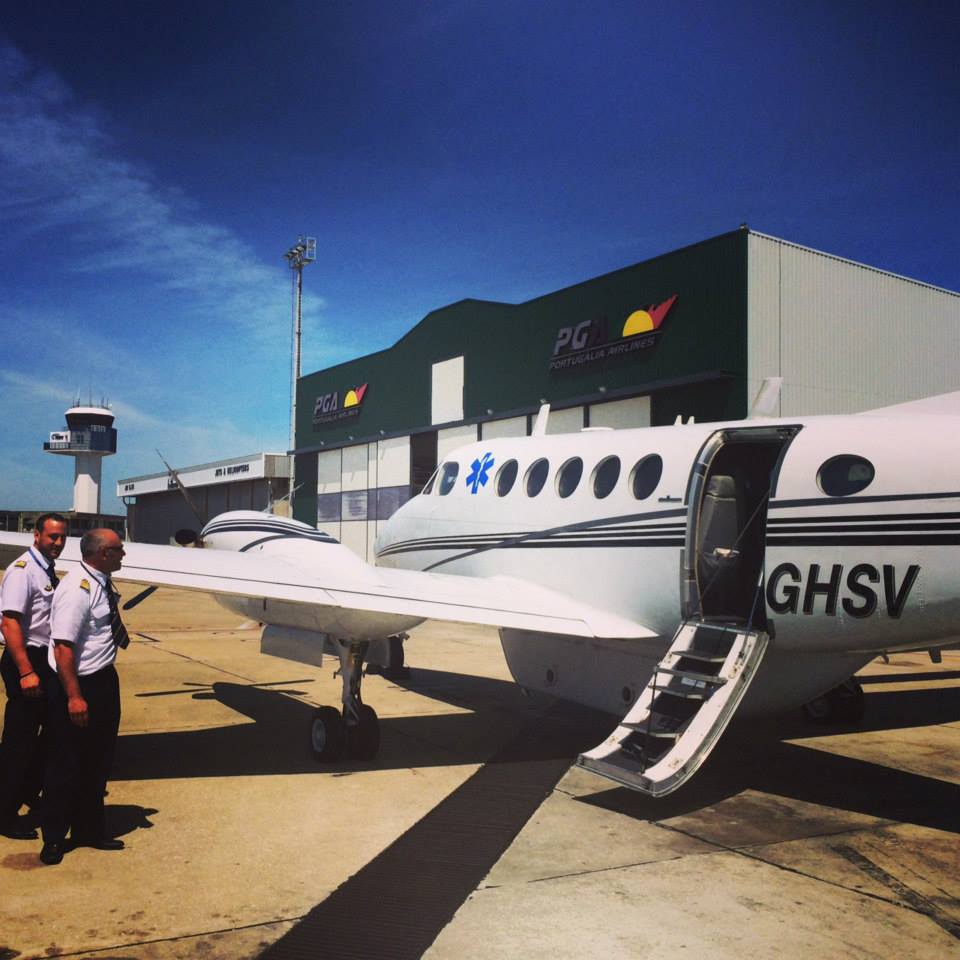
Private Air Ambulance Plane to Birmingham.
In typical athlete fashion, I started setting goals while I was still lying in hospital. I’d heard about Transplant Sport when working in the events team at Loughborough University when I was younger, and the World Transplant Games (a multi-sport International competition for those who had received life saving transplants) were due to take place in 12 months’ time in Argentina. I was determined to be on the start line competing for Great Britain.
I was discharged from Birmingham hospital at the end of August 2014, and started jogging by October. I attended my first GB Transplant training session in November and had to sit at the side because I was too weak to join in. By December I was doing running drills, and I was sprinting (slowly) by March. I joined a training group in Cardiff in April, and in June I had my first 100m race, just 10 months after my life saving surgery. I’d put my predicted time as 14 seconds, and lined up alongside 11 year olds at a Welsh Athletics Open. I ran 12.89, crossed the line and burst into tears of relief and happiness. A few weeks later I travelled to Argentina and won six gold medals at the World Transplant Games, setting four Championship bests. The next year I became the first transplanted athlete to compete at a British athletics championships, where I made the Indoor semi-final in the 60m.
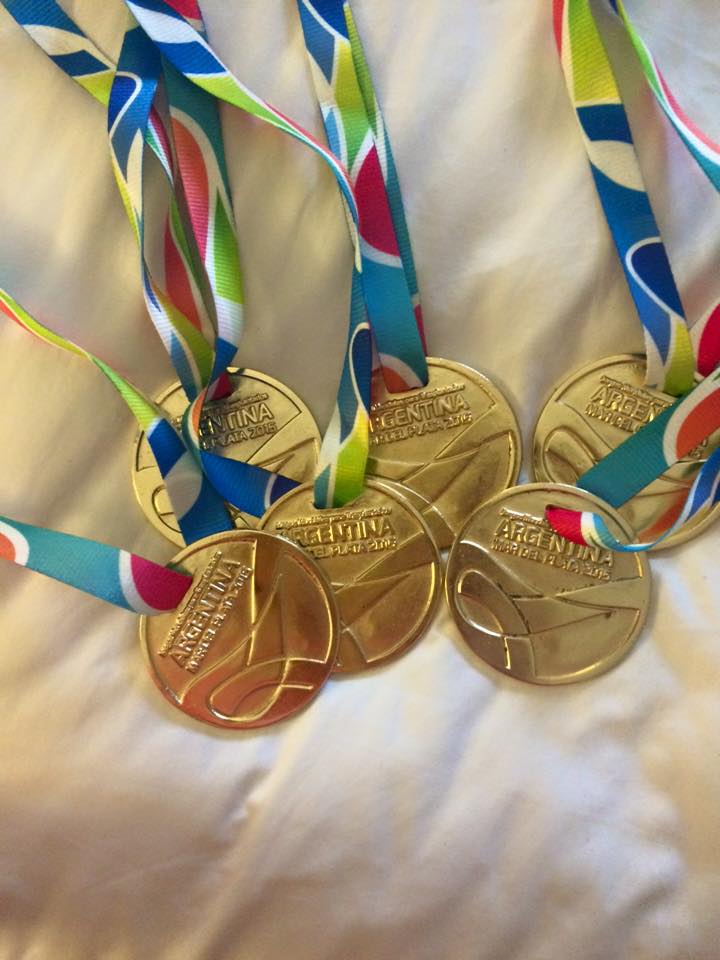
6 Golds from 2015 Argentina World Games.
In the years that followed I have gone on to captain the Great Britain athletics team at two more World Transplant Championships, including at Gateshead in 2019 where I set myself a goal of competing in the 400m (not something a 60m specialist does lightly!), and I now hold the World Championships records in the 100m, 200m, 400m, long jump and high jump.
After the 2019 Champs I gave myself a break from athletics. I’d had a crazy busy year at work, relocated back to the Midlands, and achieved everything I wanted in the sport, both pre and post-transplant. I was tired and unmotivated. A month off running became six months off running. Lockdown happened and I had no choice to stay at home, and it was the best thing that happened for me and my athletics. At some point in the spring of 2020, right in the middle of 12 weeks of shielding, I fell in love with exercise again. I did yoga to keep me sane, weight training to make me strong, and I ran because it’s all I’ve known for the past 20 years. I take medication every morning to stop my body rejecting my new, wonderful, liver and I have scars all over my body, but this transplant hasn’t stopped me quite yet.
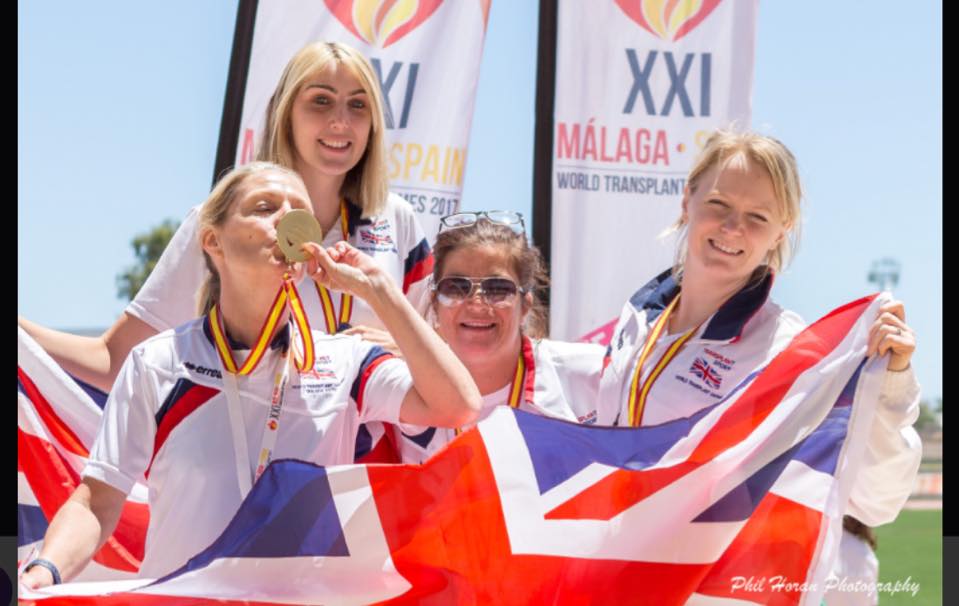
4x100m Relay Gold, 2017 Malaga World Games
A few things I’ve learnt in the past six years since my life was saved:
Health is everything. Look after yourself. Do all those boring things which keep you in one piece. Stay hydrated, do your mobility, eat vegetables. Get your vaccines! As athletes we know our own bodies more than the average person, and tend to push them far too much, but if something feels distinctly wrong, go to the doctors and push for an answer. My failing liver was missed by my GP just days before I went to Portugal, and now more than ever I don’t miss my blood tests (I’ve had over 50 since my transplant), I take my medicine every morning, and attend my check-ups religiously.
Build resilience. There are two ways of looking at life’s problems – 1) Why has this happened to me? And 2) How can I best deal with it?
I’m not going to lie, I definitely have a few wobbles now and again and question why the hell this happened to me, but quickly realise it doesn’t solve anything. Concentrate on the second question and your life will immediately be more constructive. It’s amazing what challenges we are capable of overcoming when we need to, and I don’t know anyone who isn’t a better person for overcoming barriers that have stood in their way. So continue to ask yourself, ‘how can I deal with this in the best way possible?’
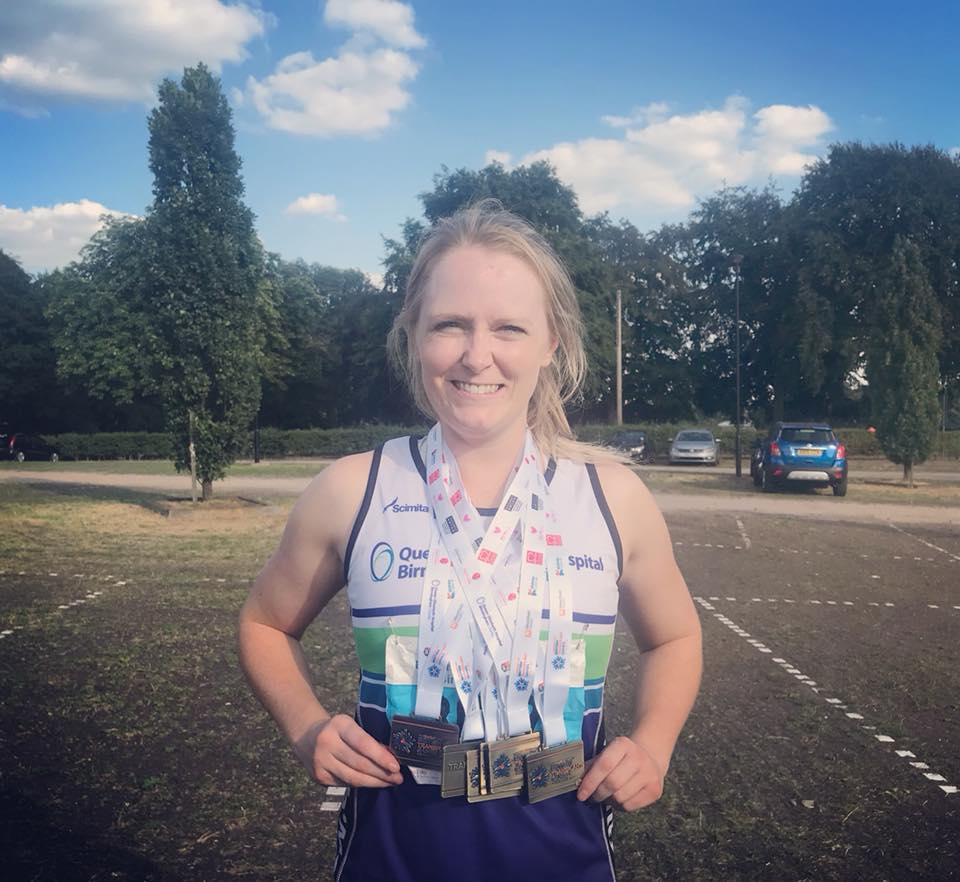
6 Golds competing for Birmingham QE Hospital at the 2018 British Games.
Athletics isn’t everything. When something is taken away from us it can be traumatic, especially if it’s something we rely on for our social interaction and mental health, so it’s always good to have a few backups. Have a hobby. Draw, dance, cook, drive, read, watch boxsets, listen to music. For me, my hobby is travel, so it’s been a difficult 12 months on that front too, however, throughout 2020 I enjoyed planning future trips, reflecting on past ones, printing out and collating my favourite travel photos, and getting away safely whenever possible (yes, a road trip and tent were involved).
Be grateful. Quite simply, every day that I’m alive is a bonus. I don’t know how long my new liver will last, it could be a few years, it could be a few decades, so I’m determined to make the most of my time on this earth. Unfortunately, I also have to pay my mortgage and bills, so I can’t do everything I’d like to (like pack it all in and travel the world!), but that doesn’t stop me loving being alive. So, I encourage, no, I implore you to find joy in the little things, don’t sweat the small stuff, and be grateful for at least one thing every day!!
Finally, please have the organ donation conversation with your loved ones. When my donor died, he saved the life of eight people. Most of the UK now has an opt out system for organ donation (you need to register if you don’t want to be seen as a donor), but next of kin can override this, and they do. So, have a quick chat with your loved ones today, mention you’ve read this awesome story from an awesome person (you can leave that bit out if you want to) who wouldn’t be alive today without organ donation, and that it’s your wish that your organs are used to save someone else if the time comes. Leave them certain.
Thank you for reading!
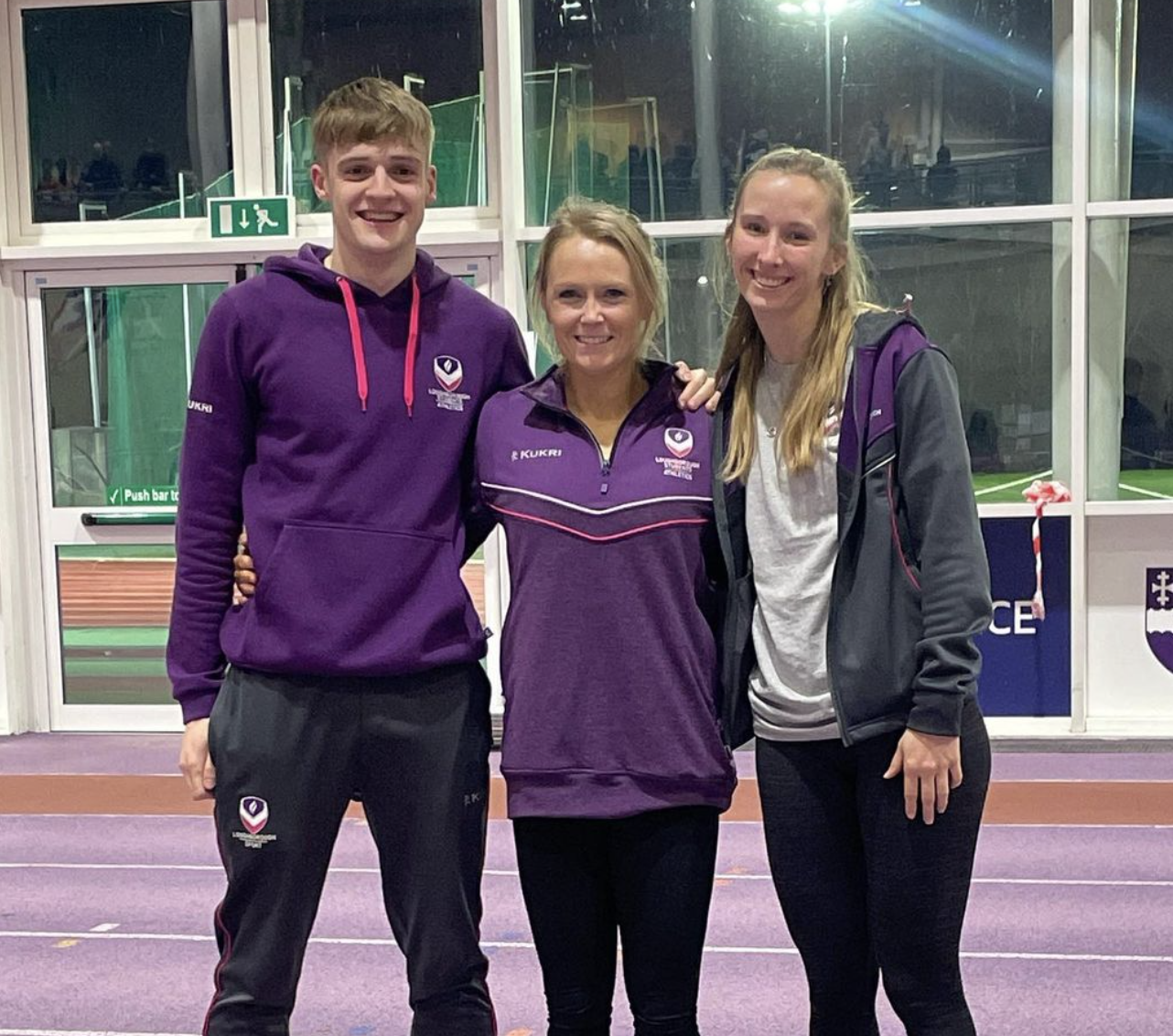


Comments